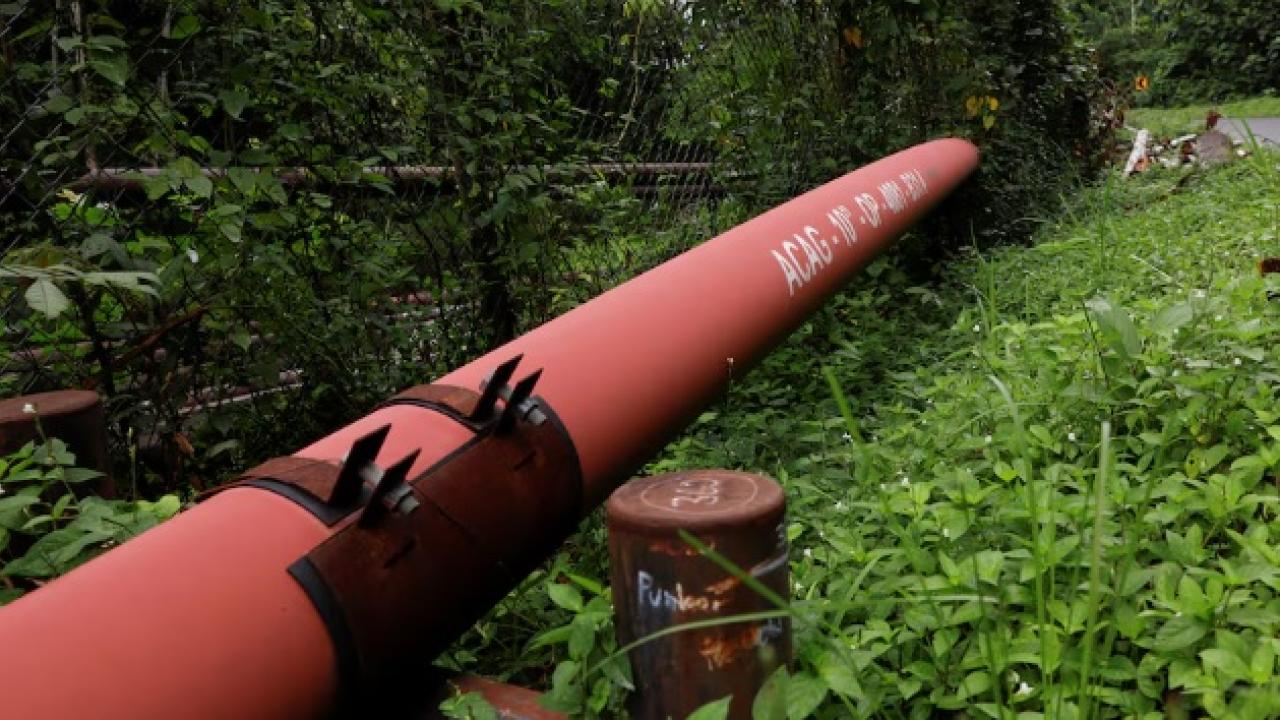
August marks one year since the popular consultation, a period in which block 43, in the Yasuní reserve of the Amazon, supposedly should have been closed.
A few weeks before the Government must transparently explain its decision on how to carry out the closure of block 43 ITT, which was decided by citizens in the popular consultation, several analysts are urging it to take urgent measures.
They assure that an income of at least $1,000 million is at stake. The fact is that August marks one year since the consultation and the question indicated that "if the yes is won, Petroecuador will have one year to close the oil block and dismantle the facilities."
César Robalino, president, and Jaime Carrera, executive secretary, of the Fiscal Policy Observatory (OPF), in a public statement urged the Government to “undertake the pertinent legal actions in order to continue with the exploitation of the ITT and avoid absolutely negative consequences for the entire society, which come from stopping doing it.”
The OPF explained that between January and May 2024, ITT production was 8.2 million barrels, which exported at a price of $66.77 per barrel produced revenues of $544 million. Until the end of the year, production is estimated at 19.5 million barrels, with a total income of $1.3 billion, which after deducting costs and investments provides the state budget with net income of about $1 billion annually.
READ ALSO: Minister of Energy of Ecuador guarantees closure of the ITT block with modulation of deadlines
The loss of ITT production is equivalent to increasing VAT from 15% to 18%, doubling customs taxes or increasing income tax levels by 20%. Even if this were possible, it would not compensate for the large loss of dollars entering the country. The US$ 1.3 billion cited is equivalent to 17 times the foreign direct investment of the first quarter of 2024, indicates the OPF.
Not exploiting the ITT represents a loss for the country of about $2.7 billion invested until 2023 in infrastructure, social compensation and other related economic activities. It would also be necessary to consider the million-dollar cost that dismantling the existing infrastructure will represent. In the future, during the years of non-exploitation of the ITT, Ecuador would stop receiving about $13,000 million.
The million-dollar loss of income to the State budget will deepen the fiscal deficit, making it unmanageable, while making the sustainability of public accounts impossible, with its perverse effects on macroeconomic stability, the attraction of investments, the growth of the economy, the job creation and poverty reduction.
In turn, a higher fiscal deficit will be impossible to finance. There will also be difficulties in covering the payment of public debt amortizations. Delays in payments to the IESS, GAD and suppliers could reach unsustainable levels, with consequent ungovernability.
The large loss of dollar income will weaken dollarization, with negative effects on the liquidity of the economy and its dynamism. Furthermore, the reduction in oil production by not exploiting the ITT will significantly affect the already weak economic growth.
Alberto Acosta, editor of Analysis Weekly, assures that clearly not continuing with the exploitation of the ITT is an inconvenient decision: “It was a shot in the foot that the citizens decided.” He agrees that stopping production would mean losing at least $1 billion annually. He also explains that there is technology that allows crude oil to be extracted from sites that could be close to the protected area.
He comments that August is the deadline, but the Government has not yet made the route plan clear. Remember that, in addition to the loss of resources, more than $600 million is required to close the block, and it will also cost 30,000 jobs.
For Acosta, the alternative is that in compliance with the popular pronouncement, the option of a new consultation or question must be sought so that, for example, a horizontal operation can be carried out or the Yasuní can be protected without the need to paralyze the entire block. The thing is that, for example, Tiputini is outside the park and yet it is also included in the closure decision.
He also explains that if this income is lost, a new tax increase will be inevitable.
In any case, he commented that it is not possible to close in August. If it is done, it must be gradual since there are physical realities. “It's not like turning off a water tap,” he says.









